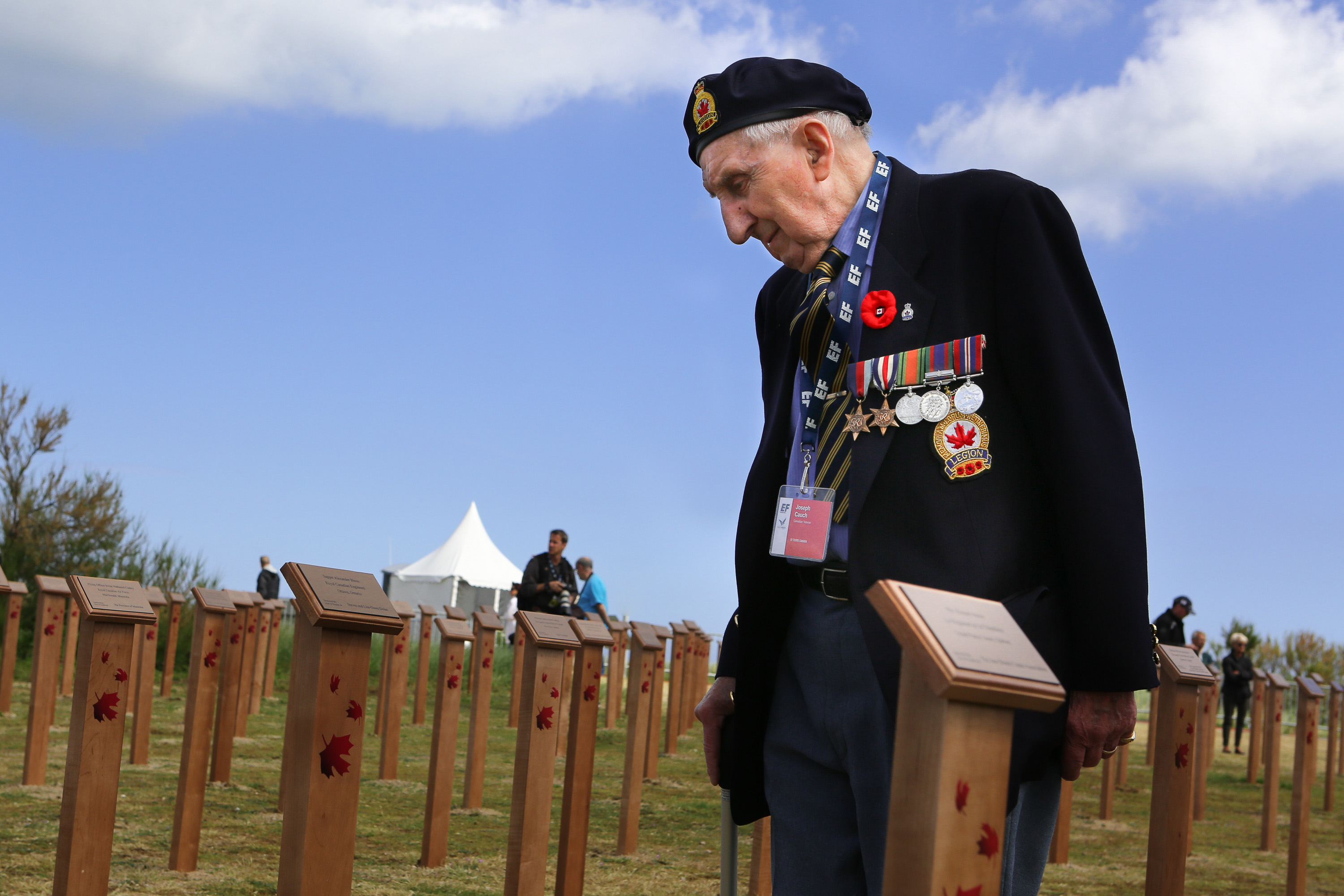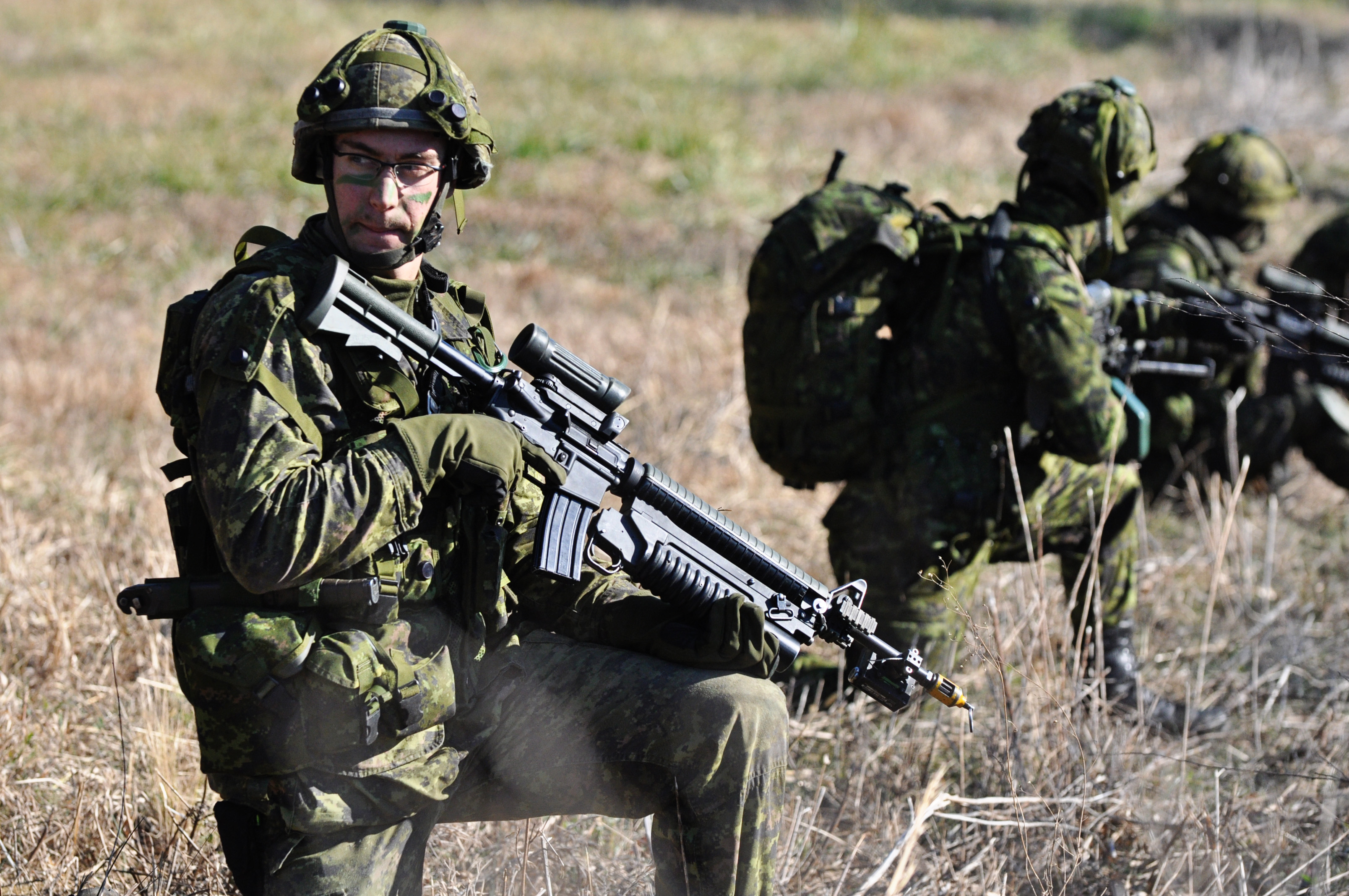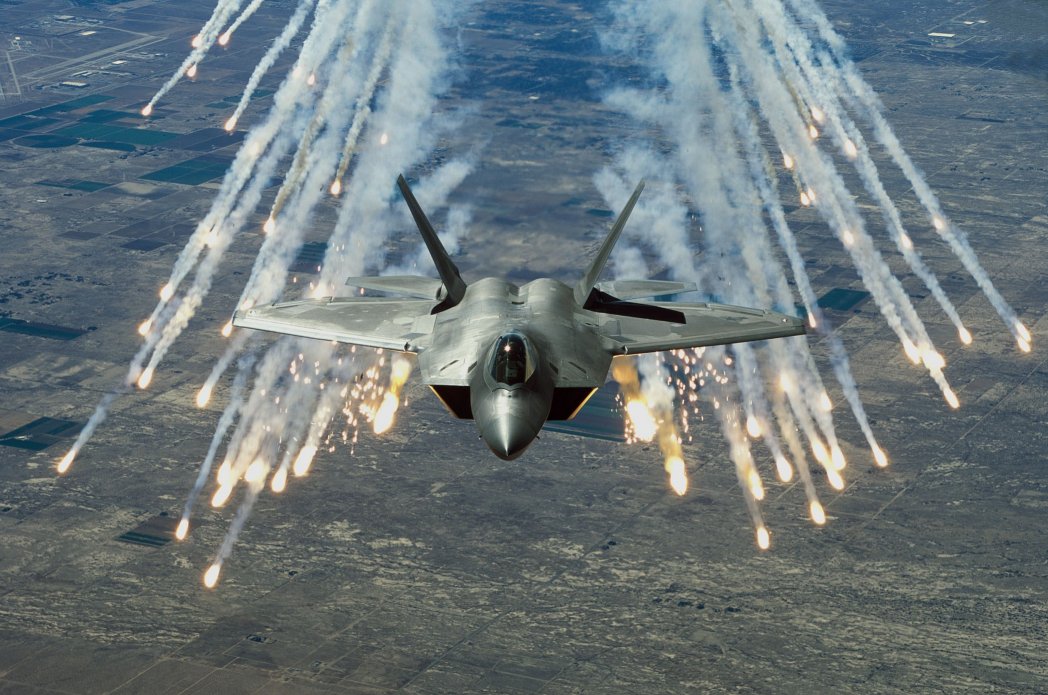If any single day can be presented credibly as the defining moment of a century and of a country, it is undoubtedly June 06, 1944. 72 years ago, Western Allies launched the great military campaign code-named Operation Overlord across the English Channel on to the beaches of Normandy to liberate Europe from what Churchill called the ‘new Dark Age’ of Nazism. Operation Neptune, the first stage of the assault was, and remains to this day, the greatest amphibious operation in the history of modern warfare. This invasion of Northern France in 1944 became the most significant victory of the Western Allies in the Second World War.
The first wave of Canadian infantry soldiers was brought into shore at 0755 hours. When the ramps of the amphibious landing crafts lowered, the soldiers dismounted and waded ashore. At this moment, the soldiers hit the beaches of Normandy and would begin the deadliest run of their lives. With disregard for their own wellbeing, the assault soldiers maneuvered across the obstacle-ridden beaches through a screen of German machine gun fire, taking heavy causalities.
The largest wars are no more than the sum of individual and regimental experiences. Of these many regiments on the beaches that day, the Regina Rifle regiment stood out as one of the finest. They were mainly farmers, students, and northern fur trappers. They were, in other words, ordinary young Saskatchewan men from all walks of life transformed into extraordinary warriors who helped bring about the end of Nazi tyranny in Europe. Although their Saskatchewan origins dubbed these young men with “just being a bunch of Farmer Johns,” the men of the regiment wore the nickname as a badge of pride, and continue to do so.
Few days in any century can truly match the strategic significance of June 06 1944.
Of a fighting force of 155,000 soldiers, 14,000 were Canadian troops who stormed ashore on Juno Beach and were the only force to capture all of their initial objectives that day, at a cost of 1000 casualties, of which 369 were fatal and 44 were from the Regina Rifle regiment. But these deaths are not in vain because the Regina Rifles did secure their D-Day objective in a day of hard bitter fighting, and controlled all of Courseulles-sur-Mer and its small, but significant port at the mouth of the Seulles River.
Few days in any century can truly match the strategic significance of June 06, 1944. The strategic achievements of that time have laid the foundation for all that came after in terms of the global balance of power and the Western model of organizing societies. The aftermath of not only D-Day, but also World War II as an entirety, saw much of Europe devastated in a way that is difficult to envision. Operation Neptune was an exceptionally difficult and hazardous military operation. It was an “operation in which Canadians took a major part in the war. For these reasons and more, it is important” to keep the memory of D-Day alive, as it will not be much longer before the living memory of the Second World War has passed.
D-Day embodies the very courage and determination of Canadians to prevail in war. It was a war fought over issues that are still alive today: ideology, injustice, and nationalism. The fierce battles of D-Day were won by the courage and strength of the individual Canadian soldier and the collective actions of their regiments; the very same courage and strength that is personified in today’s era of Canadian soldiers battling the war against extremism. Although Operation Neptune on D-Day posed a huge victory for the Western Alliance, ahead still lay eleven months of bitter fighting of Operation Overlord. Months of gruesome warfare that would then lead to the establishment of a powerful Atlantic Alliance; a great alliance upheld by NATO that serves to this day as our shield for security, prosperity, peace, and freedom.
Photo: “Veterans in Normandy” (2014) by Veterans Affairs Canada via Flickr. Licensed under CC BY-NC 2.0.
Disclaimer: Any views or opinions expressed in articles are solely those of the authors and do not necessarily represent the views of the NATO Association of Canada.




